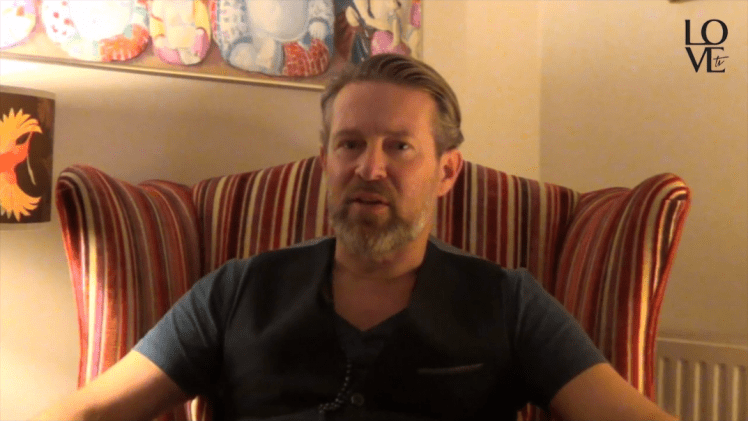I believe we should redefine the word ‘vanity’ for ourselves.
Confession time.
I’ve been guilty of hating on other people’s Instagram selfies. I’ve unfollowed other women in the past, because their photos made me feel insecure about myself. Sometimes, I look in the mirror and wish that I could wear a filter in real life. How dare I feel beautiful? Self-acceptance feels unreachable…forbidden, even.
But on other days, when I’m feeling lucky, I look in the mirror and think: “Damn, I look good today.” But before long, shame drags me down. The cycle of self-loathing begins all over again.
Why did so much of my confidence come to hinge on passing feelings, or validation from others online? Since when did comparison start ruling my life? And why can’t I just freakin’ love myself consistently?
It’s because of a little word called ‘vanity.’
The dictionary defines Vanity as “excessive pride in or admiration of one’s own appearance or achievements.”
I realize I’m being vain. Then the shame kicks in.
I grew up in an environment where self-love was a sin. Taking any pleasure in my appearance was wrong. I was instructed that Vanity was a woman’s downfall. The guilt still creeps in when I least expect it, sucking me dry of self-esteem. And the hatred I’ve developed towards my appearance comes out as insecurity, jealousy, and social anxiety.
Vanity. I’d be committing a sin for liking myself at all, so I just choose not to. It’s a virtue to be humble, right? Maybe someone, somewhere will notice how pious I am in my self-deprecation. They’ll say I’m pretty, but I won’t believe it. Somehow, that will make me worthy of their love.
After all, poor little Cinderella didn’t get to be a princess until a handsome prince fell in love with her. In a chick-flick, the geeky girl doesn’t get to know she’s hot until someone takes her glasses off.
“Hot Girl Who Doesn’t Know She’s Pretty” is one of the most popular female archetypes in TV and film. On the other hand, confident women who flaunt their beauty are almost always painted as “the bitch.”
Somewhere, right now, in a high school bathroom: a group of girls are standing around the mirror, competing for lowest self-esteem:
“I’m so fat.”
“No, you’re not! You’re so skinny. I’m the one with a tummy.”
“Well, at least you have boobs. I’m so flat.”
“But all the guys like you. None of them notice me.”
…Chances are, the youngest girl might not have thought to hate herself until this very moment. If all of her older, prettier, more popular friends hate their bodies, then who does she think she is?
Vanity. We have all been conditioned to fear it, in some way or another. I realize now that this kind of shaming was designed to keep women from realizing their worth. I’ve come to believe that someone, somewhere invented “vanity” to keep his wife at home.
Shame is a cage we build to keep the heart in check. If I feel inferior to my partner, he’ll always have the upper hand. Even if he’s abusive. Even if I’m unhappy.
This might be why so many beautiful, intelligent women find themselves in unhealthy, codependent relationships. Our self-worth relies on the validation of others.
It’s not our fault. After all, we’re conditioned to be this way. Our society demands that women compete with one another for attention – romantically, professionally and physically. Most of us are expected to spend considerable amounts of time on our appearance each day, changing how we look in order to fit in.
Blaming someone for their low self-esteem is like blaming the body for feeling pain. It’s not the symptom that needs attention. We have to find the source, and change it.
Here’s one way to start:
I believe we should redefine the word ‘vanity’ for ourselves.
There’s a difference between confidence and narcissism. We should stop labeling women as “attention seekers” for celebrating their beauty. We should congratulate girls who score well on tests, speak up for what they believe in, and say ‘no.’
The moment we apologize for voicing our position, we lose our freedom to have one.
There’s nothing wrong with being smart, looking good, and knowing both are true. Let’s eradicate the shame that muddies your daughter’s reflection, before it’s too late.
When a woman looks in the mirror and loves what she sees, nothing can stop her.
I try to remember this when I put on my makeup every day. My concealer wasn’t made to diminish me. My lipstick is not applied to steal attention. My eyeliner is not for anybody else. And so what if my cat-eye isn’t perfect – I’m having fun.
Now, I wear makeup because it makes me feel powerful. I post photos of myself when I’m feeling brave. My online selfie is not a cry for validation – not anymore. Photos have become my way of expressing of self-love, without needing permission. Publishing my words online is how I celebrate my voice and invite others to do the same.
It’s not self-promotion; it’s self-possession. This is me, taking ownership of myself in a way that makes me feel empowered.
As you embrace your own confidence, it’s important to encourage it in others. I think we should stop judging other women for being hot/self-centered/sexual/oversharers, period. Everyone is entitled to free speech. And yes, this includes gratuitous selfies.
Often, individuals who seem the most self-involved are actually the most self-critical. It took me a long time to realize this. Judging other women for their “narcissism” is ultimately a reflection of my own insecurity. By the same token, encouraging others makes me feel good, too. How we treat others is a reflection of the way we see ourselves.
So here’s what I wish for you to know, if you’re still reading. You’re allowed to know you’re attractive. You’re encouraged to recognize your own brilliance. You are also allowed to acknowledge the beauty in others, with no risk of diminishing your own.
Vanity, redefined, is self-love.
It’s gratitude. It’s expression. Own it. Live it. Celebrate it. Share it.
This is not about makeup or selfies or #goals. It’s about you, beneath the filter.
If someone were to call me “vain” nowadays, I’d smile and say “thank you.” I don’t feel like I’ve committed a sin by calling what I see. The gods have not come down to smite me for admiring their creation. I haven’t hurt anyone by loving myself. In fact, I feel that embracing ‘vanity’ has made me a better person.
Lucille Ball once said, “Love yourself first and everything else falls into line. You really have to love yourself to get anything done in this world.”
The future is a girl. She stands in front of the mirror and loves what she sees. She wears red lipstick if she feels like it; she wears nothing when she wants to. And she is not ashamed.






 Watch as Mike Lousada talks about Sensations, Feelings and Emotions.
Watch as Mike Lousada talks about Sensations, Feelings and Emotions.